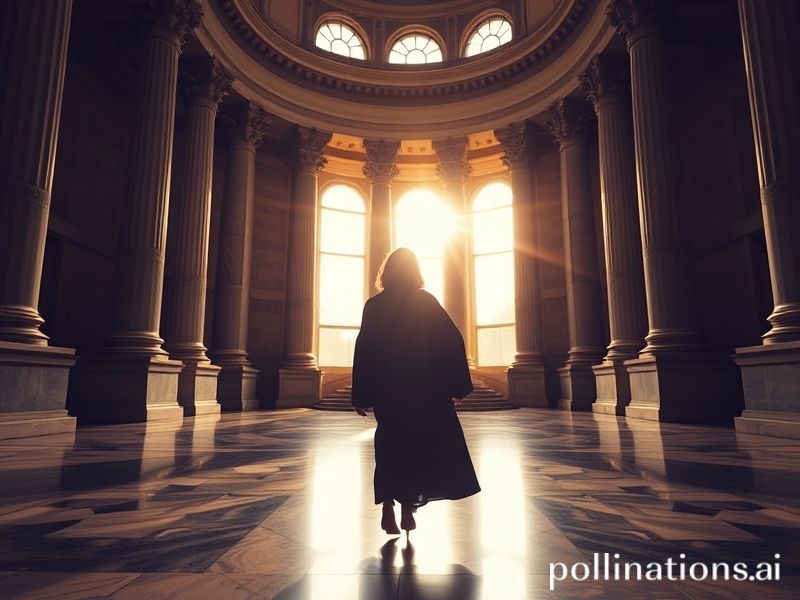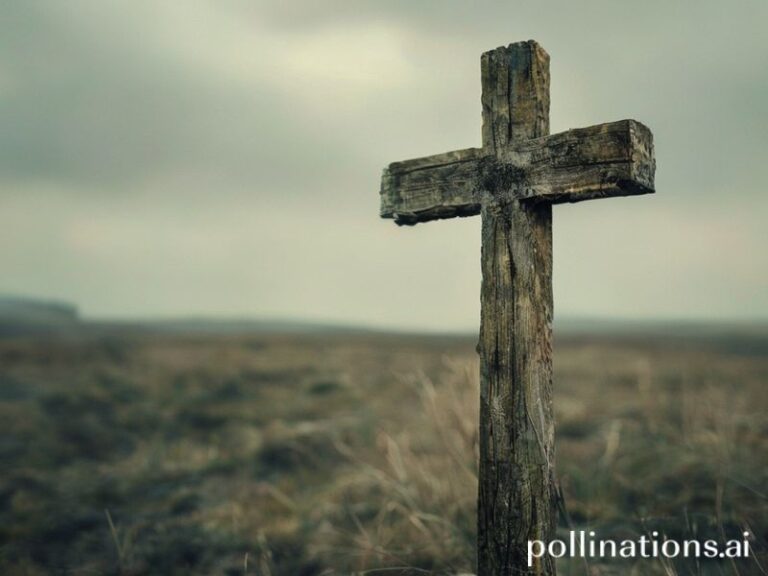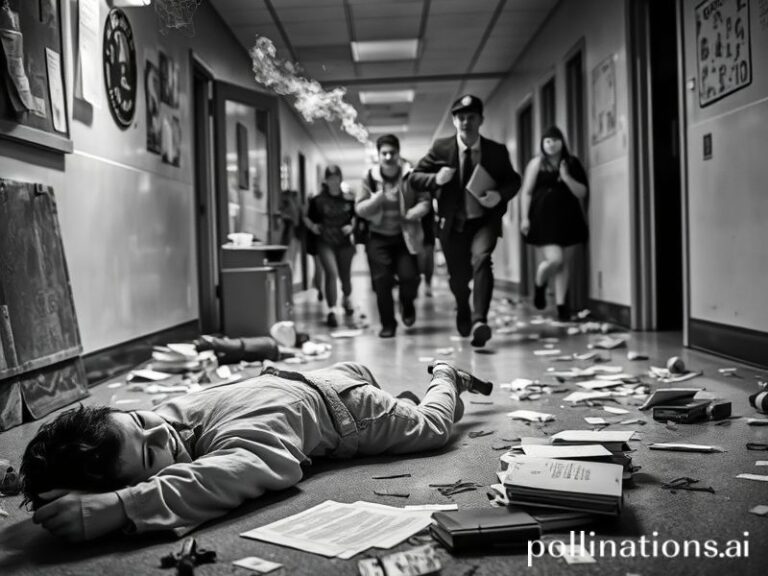Global Law & Order: A Magical Mystery Tour of Handcuffs, High Courts, and Hilarious Hypocrisy
Law and Order: A Global Magic Show Where the Handcuffs Sparkle and the Audience Applauds the Illusion
————————————————————————–
In the grand amphitheater of geopolitics, “law and order” is the headline act that never gets old—mostly because the script keeps changing mid-performance. From the marble corridors of The Hague to the fluorescent-lit holding cells of Lagos, the phrase is invoked with the solemnity of a prayer and the flexibility of a yoga instructor. Peel back the curtain and you’ll find the props are remarkably similar: flags, uniforms, statutes thick enough to stun an ox, and the perennial promise that this time the rabbit of justice won’t be sawed in half.
Take Singapore, where chewing gum is contraband and littering can earn you a date with a judge faster than a bad Tinder swipe. The city-state’s spotless sidewalks gleam like a rebuke to the rest of us slobs, proving that if you criminalize enough minor sins, you can almost forget the bigger ones—like how the same legal code keeps the same party in power since disco was hot. Meanwhile, 17,000 kilometers away in Reykjavik, police officers pose for Instagram with kittens while homicide rates remain so low that any murder makes the evening news like a surprise album drop. Iceland’s secret? A population smaller than most subway lines and a welfare state that treats poverty as a design flaw, not a moral failing. Different songs, same karaoke bar: the state croons “We keep you safe,” and citizens sing along, slightly off-key but enthusiastically.
Spin the globe and the tune warps. In Mexico, the rule of law is a telenovela with more plot twists than a narco tunnel: yesterday’s attorney general is today’s missing person, and the only thing stiffer than the margaritas is the body count. Yet the Mexican Supreme Court still convenes, powdered wigs swapped for sober suits, calmly declaring unconstitutional whatever the latest president thought would boost poll numbers. It’s as if Shakespeare’s Macbeth decided to open a notary office right after the banquet scene—dagger still dripping, but stamps duly affixed.
Head north and Canada apologizes for even having laws, while southward Brazil’s Supreme Federal Court live-streams its deliberations like a judicial Twitch channel: “Watch Minister Fachin own the opposition with FACTS and LEGAL LOGIC—don’t forget to smash that subscribe button!” The spectacle reassures investors that institutions still function, even if the Amazon occasionally burns in the background like a forgotten barbecue.
Zoom out further and the pattern crystallizes: law and order is less a universal principle than a Rorschach test for national anxieties. Israel markets its Iron Dome as both missile defense and jurisprudence—because nothing says “due process” like intercepting rockets mid-air. China sells its social-credit panopticon as the ultimate neighborhood watch, where jaywalking subtracts points and binge-shopping loyalty adds them, turning George Orwell into an operations manual. The EU, ever the artisanal boutique of governance, prefers its surveillance with GDPR-compliant privacy notices in 24 languages, proving you can indeed polish a digital ankle monitor until it shines like a Scandinavian coffee table.
And then there’s the United States, where “backing the blue” competes with “defund the police” in a reality-TV cage match, each side armed with its own statistics and GoFundMe accounts. The same country that pioneered Miranda rights also perfected civil asset forfeiture, a legal sleight-of-hand where your cash can be found guilty of drug dealing even if you walk free. It’s the jurisprudential equivalent of a magician asking the audience to pick a card, then making their wallet disappear.
What binds these disparate acts together is the comforting illusion that somewhere, someone is in control. International bodies like INTERPOL issue color-coded notices—red for wanted persons, yellow for missing, presumably mauve for “It’s complicated”—yet their most wanted list resembles a geopolitical yearbook where alumni keep swapping seats. Meanwhile, transnational corporations hire private security firms whose uniforms are indistinguishable from state armies, except the logo is cooler and the health plan worse.
The broader significance? Law and order is the planet’s most successful export product, right after pop music and diabetes. It travels in shipping containers labeled “technical assistance” and lands in post-conflict capitals where new constitutions are printed on paper so fresh it practically squeaks. Whether it blossoms or curdles depends less on the text than on whether anyone can afford the ink to reprint it after the first coup.
So next time a politician pledges to restore law and order, remember: they’re not promising a solution, they’re selling season tickets to the next illusion. Sit back, clap politely, and keep an eye on your wallet—because in this magic show, the disappearing act is often you.







